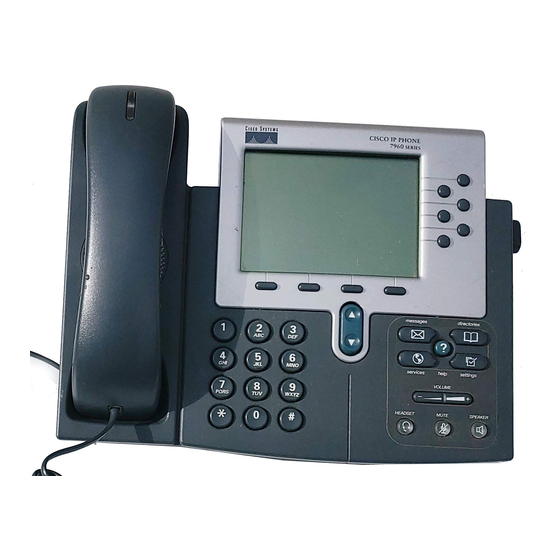Cisco Cisco 7960 Manual - Page 10
Browse online or download pdf Manual for IP Phone Cisco Cisco 7960. Cisco Cisco 7960 35 pages. Ip phone & unity voicemail
Also for Cisco Cisco 7960: User Manual (19 pages), User Manual (12 pages), Customized User Manual (2 pages), User Manual (15 pages), Installation And Configuration Manual (10 pages), User Manual (23 pages), User Manual (14 pages), Reference Manual (2 pages), Quick Reference Manual (2 pages), User Manual (28 pages), User Manual (16 pages), Quick User Manual (2 pages), User Manual (9 pages), Reference Manual (4 pages), Quick Start Manual (12 pages), Manual (8 pages), Quick Reference Manual (12 pages), User Manual (20 pages), User Manual (14 pages), Quick Reference Manual (12 pages), Administrator's Manual (10 pages), User Manual (6 pages), Quick User Manual (2 pages), Reference Manual (17 pages), Quick Manual (2 pages), User Manual (3 pages), Quick User Manual (2 pages), Quick Installation Manual (1 pages), Manual (21 pages), User Manual (3 pages), Getting Started (50 pages), Quick Start Manual (6 pages), Quick Start Manual (2 pages), Quick Reference Manual (2 pages), Quick Start Manual (2 pages), Getting Started Manual (27 pages), Reference Manual (3 pages), User Manual (12 pages), User Manual (12 pages)

